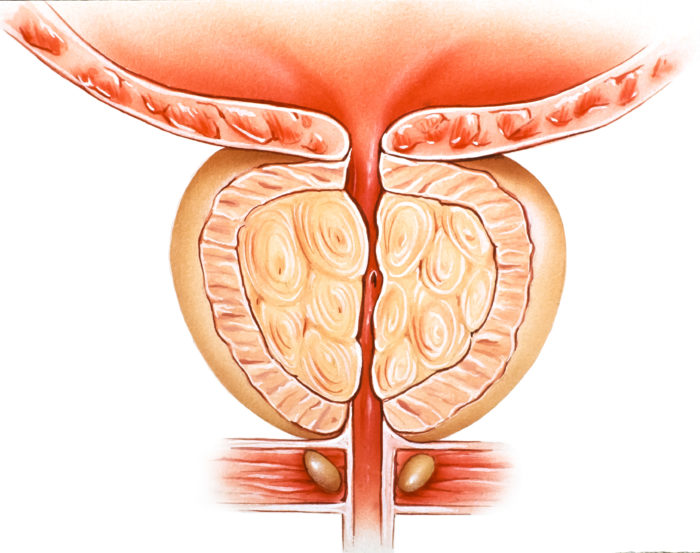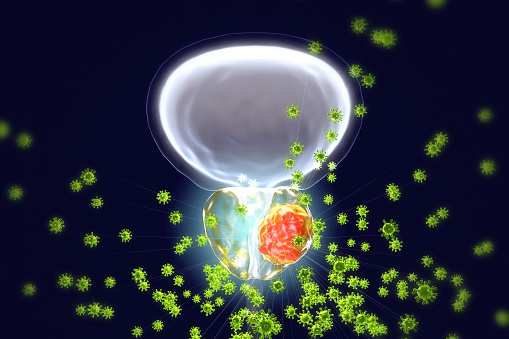
4MU has anti-tumor effects!
December 7th, 20184MU is known to markedly decrease the production of hyaluronic acid, but at the same time evidence is now emerging that it appears to act against tumor progression.
As a non-toxic dietary supplement, it has been shown in earlier experiments to be beneficial for prostate cancer, now evidence is emerging that it could positively impact pancreatic cancer too.
A highly aggressive disease
Pancreatic cancer such as PDAC is a highly aggressive disease, cancerous cells form in the tissues of the pancreas. The American Cancer Society revealed 23% of patients live one year after diagnosis and 8.2% after 5 years. Treatment includes surgery, chemotherapy or radiation therapy. (1)
4MU – a life-prolonging agent that is fighting cancer
The dietary supplement 4MU, short for 4-methylumbelliferone is a chemopreventive and therapeutic agent that can be used to battle prostate cancer, it targets tumor development, growth, and metastasis by abrogating hyaluronic acid (HA) signalling. 4MU can literally start to break down the barrier of cancer cells in the pancreas – performing a process that other agents struggle to do.
Research reveals and what the experts say
In March 2018 the US National Library of Medicine published a study. It stated that the orthodox treatment for pancreatic cancer was typically met with a poor response and further, more effective treatments are required, they stated that “there is an urgent need to tackle and control tumor invasion and drug resistance.”
In response, their study revealed that 4MU demonstrated anti-cancer effects through decreasing cell viability, adhesion, migration and invasion increasing anticancer agents. Their conclusion was that 4MU is a chemotherapeutic agent that can inhibit the enhanced migration of pancreatic ducral adenocarcinoma. (2)
Of mice and men
As part of the ongoing cancer research, mice are injected with or fed cancer cells.
The TRAMP mouse is a model for prostate cancer. The transgenic adenocarcinoma of the mouse prostate (TRAMP) model closely mirrors the pathogenesis of human prostate cancer. Male TRAMP mice uniformly and spontaneously develop autochthonous (orthotopic) prostate tumors following the onset of puberty.
The US National Library of Medicine published the following outcome from their research:
While vehicle-treated transgenic adenocarcinoma of the prostate (TRAMP) mice developed prostate tumors and metastases at 28 weeks, both were abrogated in treatment groups, without serum/organ toxicity or weight loss; no tumors developed at one year, even after stopping the treatment at 28 weeks. 4MU did not alter the transgene or neuroendocrine marker expression but downregulated HA levels.
However, 4MU decreased micro-vessel density and proliferative index (P < .0001,). 4MU completely prevented/ inhibited skeletal metastasis in the PC3-ML/Luc+ model and DU145-tumor growth (85–90% inhibition, P = .002).
4MU also statistically significantly downregulated HA receptors, PI-3K/CD44 complex and activity, Akt signalling, and β-catenin levels/activation, but upregulated GSK-3 function, E-cadherin, and apoptosis effectors (P < .001); HA addition or mAkt overexpression rescued these effects.
The study concluded that 4MU is an effective non-toxic, oral chemopreventive, and therapeutic agent that targets PCA development, growth, and metastasis by abrogating HA signalling. (3)
Other Cancers
4MU does influence other cancers such as liver, ovarian, breast and prostate. A study revealed that 4MU has an anti-tumor activity in-vivo and its mechanisms of action involve a reduction of the proangiogenic factors VEGF and CXCL12, as well as a decrease of IL-6 production in liver tumor microenvironment; (4)
A positive force
4MU has proved itself to have a positive effect on conditions where alternative surgeries and treatments have hit a roadblock – especially in the case of pancreatic cancer.
Clinical trials on humans
To date, tests on humans have been done with no known serious side-effects.
The typical dose for an adult is 1000 mg to 3000 mg per day, and 4MU appears to be a well-tolerated oral medication. (5)
References:
1. https://www.webmd.com/cancer/pancreatic-cancer/digestive-diseases-pancreatic-cancer
2. https://www.ncbi.nlm.nih.gov/pmc/articles/PMC5920249/
3. https://www.ncbi.nlm.nih.gov/pmc/articles/PMC4554252/
4. https://academic.oup.com/glycob/article/25/8/825/2450469
4MU-Pro Product Information: http://bit.ly/4MUProductInfo





